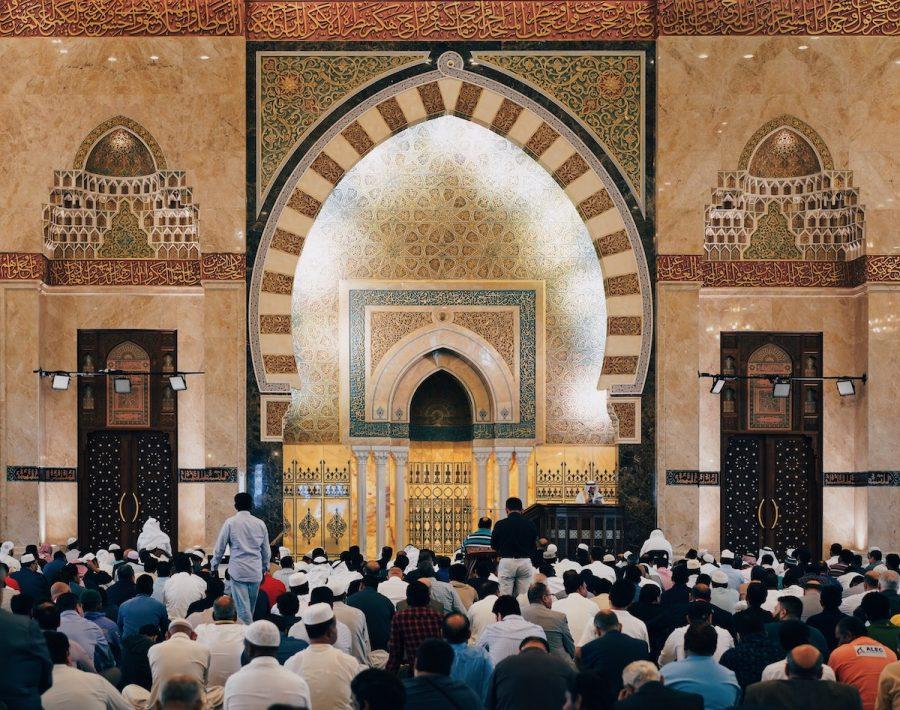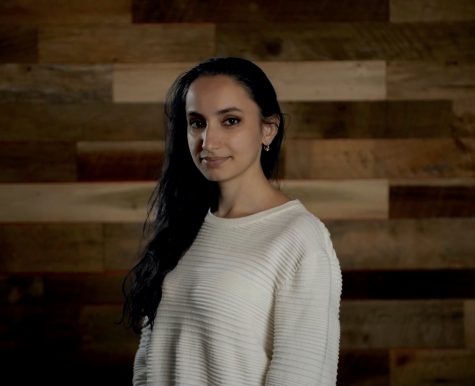[Podcast] Abroad in America: How a Muslim family celebrates Ramadan during the pandemic
May 6, 2020
Ramadan is the month when Muslims across the world fast from sunrise till sundown. It’s typically a month of prayer, reflection and community where where families gather to pray at the mosques, to share a meal and give to others.
But during this time of social distancing, many mosques, where Muslims are supposed to come pray together, are closed. Noaf Aldira, a British Muslim who lives in London, explains what Ramadan means to her and her family and how they are celebrating this special occasion during the pandemic.

Transcript
Welcome back to Abroad in America, a podcast by Global Observer magazine from Northeastern University.
For this week’s podcast, we will be talking about Ramadan. Ramadan is the month when Muslims across the world fast from sunrise till sundown. It’s typically a month of gathering where families get together to pray at the mosques to eat and give to others. But in the time of social distancing, a lot of mosques are closed, which leaves a lot of Muslim families apart. Noaf Aldira is a British Muslim who lives in London. And she explains what Ramadan is and what it means to her and her family.
Noaf Aldira:
Ramadan is the holy month for Muslims and the idea behind it is you go a month without, you know abstaining from all your desires, including food and drink. And the main purpose is for you to feel how poor people or people, who don’t have food and drink, feel. So the idea is for you to feel hungry, for you to feel thirsty so that you know, you remember the blessings that you have a month of kindness forgiveness.
Suhra Nahib:
On the first night of Ramadan, a lot of Muslim families decorate their houses with lights and Islamic symbols, dress up for the small celebration and head to the mosque for the prayer. Due to COVID-19, mosques are closed which leaves a lot of Muslim families to celebrate virtually and pray at home.
Noaf Aldira:
On the night of Ramadan, we usually decorate the house. So we have Ramadan lights, we have Ramadan decorations you know similar to the Christmas decorations but it has the Islamic Muslim tradition. So it has like crescent the moon, it has small lamps because that is the symbol of Ramadan Islamic clothing. Girls in Islamic clothing boys in Islamic clothing. We have that and we decorate the whole house with it and then what we usually start Ramadan by praying you know, to Rakat’s prayers and then we sit together as a family. We make some prayers to God and we usually start with a nice competition on the first day so we have like little competition within the family.
Pre-coronavirus, my dad or my brother sometimes they’ll go to the mosque, we tend to stay at home and do the prayer with my dad just because it’s easier for us. And we like to give space because we live in London and the mosques are big. So we like to give space to people who don’t have space in their house to pray. But we do, so that’s usually how we start our Ramadan.
Suhra Nahib:
Since all the mosques in London are closed and any kind of social gathering is prohibited, it leaves a lot of families and some individuals to be alone during Ramadan. But Noaf believes that despite that, Muslim people try to look at it on the bright side.
Noaf Aldira:
The mosques are closed, any mass gatherings are not allowed. Obviously Muslims are coping quite well because I’d like to think that they do have a good level of trust in God and they are coping quite well. And we are aware that everything comes from God and the solution will be provided by God. But it is difficult for some people, the reason being some people don’t have enough space to pray in their house. Ramadan is about gathering, it’s about unity, it’s about kindness and some people for them is one of the few times during the year where they get a chance to meet up with people in the mosque and pray together and eat together and have that kind of Islamic community.
And for someone especially who’s single who, for example, their mom, dad are dead or they don’t have any siblings and their parents live in another country. It is quite difficult for those individuals because they don’t have anyone. But in general, I think everyone is coping quite well personally. I would like to work in Ramadan because the whole point of Ramadan is you know for you to feel it and every Ramadan I have worked this is the first Ramadan I’m not working that feels a little bit weird but apart from that, we’re coping quite well actually.
Suhra Nahib:
After Ramadan, there is Eid al-Fitr, which marks the end of Ramadan and is celebrated during the first three days. Eid al-Fitr is the time when families visit each other and kids are given presents. But there is a possibility that this year, Muslim families have to celebrate Eid virtually.
Noaf Aldira:
Well, I’m hoping that the lockdown will end at the end of Ramadan so we can celebrate Eid because again it is all about unity, it’s all about togetherness. Eid prayer is usually prayed in the mosque. Everybody prays in the mosque or sometimes we have it in the park and it’s so fun because you meet everyone.
I meet my friends that I haven’t met in a couple of years. I only see them during Eid because they live far away and they come to this big mosque to pray or you know, some of them are married and some of them you know, a lot of responsibility so I get to see all of them. Everyone’s giving out either chocolates or cakes or something, you know, so really nice atmosphere.
And it’s sad that this year, unfortunately, of course, we will have it in the family but we’d be nice to interact with those individuals. So I hope that towards the end of Ramadan, the lockdown is at least released or slowed down a little bit you know, some limitations are allowed so that we can go out and we can enjoy ourselves a little bit because it is the celebration after Ramadan.
Suhra Nahib:
Hopefully by the end of the Ramadan things would get a little better so Muslims across the world could celebrate Eid al-Fitr with their families and loved ones.
On behalf of the Global Observer magazine staff, I wish Muslims in America and across the world Ramadan Kareem.


